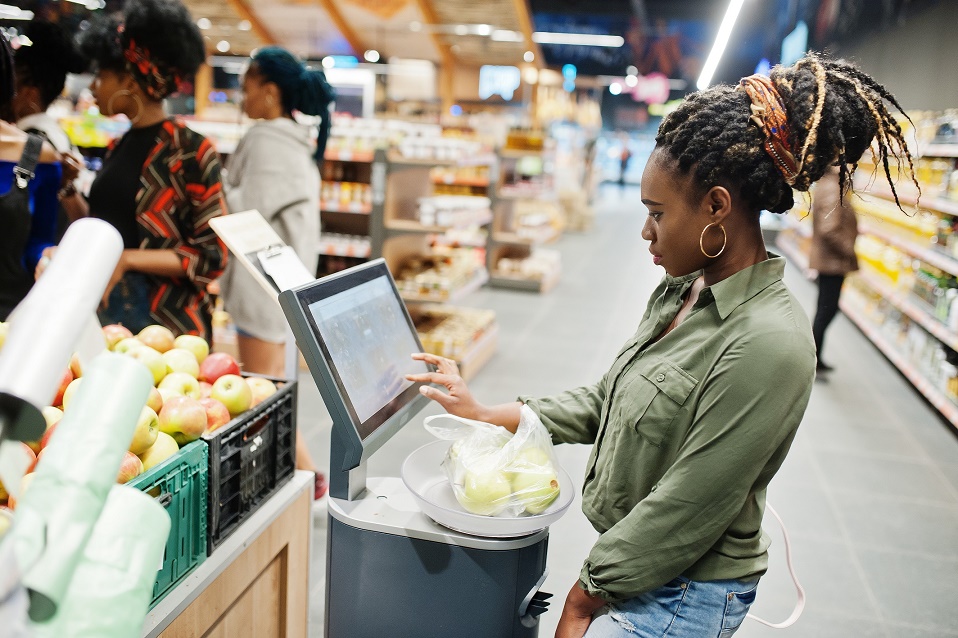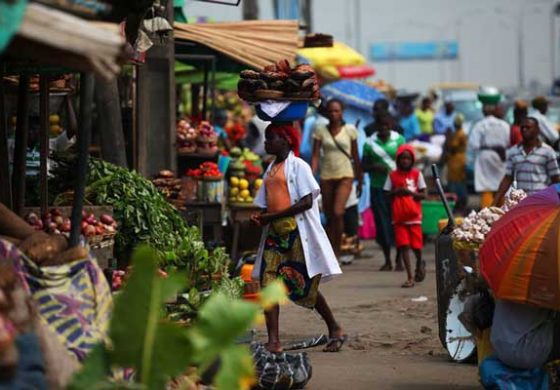General
Nigerian Consumers Highly Price Conscious—Study

‘Money’s too tight to mention’ for Nigerian shoppers who are highly price conscious and are taking several measures to mitigate rising food prices including cutting down on luxury items and buying in bulk to benefit from lower prices. These are just some of the findings from Nielsen’s latest 2019 Nigeria Shopper Trends Report.
Nielsen Consumer Insights Lead for West Africa Abiodun Olawale-Cole says; “Nigerian shoppers have become more cautious with their spend, they are pre-planning their category choices prior to shopping visits and once in store; mostly buying essentials and switching to cheaper brands.
“Factors impacting these choices include the fact that they’re increasingly shopping with a limited budget and are keen on low prices. In addition, a high number of shoppers notice price changes and most think prices are on the rise.”
Despite their concerns around price, Nigerian shoppers are experimental when it comes to trying new stores and will visit a new outlet in the area. Though motivated for initial visits, this is not seeing shoppers move past the trial stage of the shopping journey and is not converting them to loyalists.
Olawale-Cole suggests; “Retailers and manufacturers must consider the current shopper mindset when it comes to product pricing and strive to meet the needs and wants of a price conscious and deal-seeking shopper to improve loyalty and secure higher spend.”
Modern trade gains ground
Looking at the evolving roles of Modern Trade (MT) e.g. branded supermarkets and stores versus Traditional Trade (TT) e.g. non-branded stores, table-tops and kiosks within the Nigerian retail space, Olawale-Cole says that MT is starting to gain a foothold with a total value share of around 5% of FMCG sales.
“More than 90% of FMCG sales within Nigeria still take place within TT outlets in terms of value and volume and we don’t see that changing much in the next 12-months, however, we do expect significant growth in MT within the next five years.”
“Where we are seeing a lot of growth is in the number of physical MT stores with a number of local branded supermarkets opening e.g. Adide, as well as international chains such as Shoprite and Spar having bolstered the market. The percentage of spend has also almost doubled in Supermarkets compared to 2 years back (17% in 2017 to 33% in 2019), signalling more acceptance of modern trade in the country.”
The Nielsen Shopper Trends study found that Nigerian shoppers mainly use TT for their top up shops, so frequency of visits to these types of stores is understandably higher. Their main reason for visiting MT stores is for bulk shopping with spend normally much higher for this type of trip and visits to supermarkets averaging four times a month, while visits to convenience stores average nine times a month.
Convenience is key
Olawale-Cole elaborates; “Nigerians are starting to shop at Modern Trade outlets more; with one of the key drivers of this behaviour being the convenience of a one stop shop. This is evidenced by the fact that Convenience Stores have the highest monthly footfall within the MT category, with average shopper visits more than double that of Supermarkets.
It’s important to note that Traditional Trade (TT) also offers convenience in the form of close proximity to home and office and still provides better pricing on certain items but Olawale-Cole says; “In line with consumers’ need to simplify their lives, we foresee urban MT retail outlets e.g. supermarkets, growing their share of trade in Nigeria, as consumers become more willing to pay for the convenience and time saving benefits of one stop shop solutions.” Evidence of this is that larger independent MT stores are already gaining ground in Nigeria’s urban areas, with formats offering a combination of large and small stores.
Overall, the growing demand for convenience presents manufacturers and retailers with countless opportunities.
Olawale-Cole comments; “Today, convenience transcends products, services and store channels. Packaging innovation, route to market, storage, portability and ordering, as well as device, payment and application technologies all need to be key considerations in providing an overall convenience experience that appeals to the discerning Nigerian shopper.”
General
Deep Blue Project: Mobereola Seeks Air Force Support

By Adedapo Adesanya
The Director General of the Nigerian Maritime Administration and Safety Agency (NIMASA), Mr Dayo Mobereola, is seeking enhanced cooperation between the agency and the Nigerian Air Force (NAF) with the aim of strengthening tactical air support within the Deep Blue project.
During a courtesy visit last week, Mr Mobereola told the Chief of Air Staff, Air Marshall S. K. Aneke at the NAF Headquarters in Abuja, that the Air Force was a strategic partner in enhancing maritime security in Nigeria and sustaining the momentum of the Deep Blue Project’s success.
According to the DG, “We are here to seek the Air Force’s support, given the importance of tactical air surveillance to the Deep Blue Project. Nigeria is the only African country with a record of zero piracy within the last 4 years. The Deep Blue Project platforms have been used to achieve zero piracy and sea robberies in the Gulf of Guinea, and we need your collaboration to sustain this momentum”.
He further emphasised that international trade depends on security, which is why vessels prefer to go to or transit through countries where they are secured. “With the traffic we have now, we need to show more security might through collaboration to strengthen our trade viability because of the risks attached to our route. We need these collaborations to sustain what we have achieved so far with the Deep Blue Project”.
The NIMASA DG expressed hope that the collaboration with the Nigeria Air Force will reduce response time.
On his part, the Chief of Air Staff, Air Marshall S.K. Aneke, noted that the Air Force desires to be “a very supportive and collaborative partner with NIMASA and is ready to match the Agency step by step and side by side to achieve the desired results.”
He noted that “collaboration between NIMASA and the Nigerian Air Force under the Deep Blue Project can be strengthened through a joint strategic framework, integrated command structures, and a standing steering committee to ensure shared objectives and accountability.
“Establishing a joint maritime domain awareness fusion cell will enable real-time intelligence sharing, synchronised surveillance, and faster response to maritime threats and ensure sustained operational effectiveness across Nigeria’s territorial waters and exclusive economic zone,” he said, according to a statement.
The Air Force Chief added that the Air Force can also support NIMASA outside the Deep Blue Project operations by providing its own ISR platforms, tactical air support, and rapid airborne deployment for interdictions and search and rescue missions.
While thanking the NIMASA DG for the basic trainings the Agency has provided the aircraft pilots under the Deep Blue Project, Air Marshall Aneke also highlighted areas of operational challenges needing NIMASA’s attention to include bridging the communication gap between NAF operators and NIMASA, higher level and in-depth maintenance trainings, readily available fueling of aircrafts to avoid delays on missions, and provision of flying kits among others.
He therefore pledged the Air Force’s collaboration and assured that the request by NIMASA has been noted and that things will begin to move at thrice its speed going forward.
General
Nigeria’s Democracy Suffocating Under Tinubu—Atiku

By Modupe Gbadeyanka
Former Vice President, Mr Atiku Abubakar, has lambasted the administration of President Bola Tinubu for the turnout at the FCT Area Council elections held last Saturday.
In a statement signed by his Media Office, the Adamawa-born politician claimed that the health of Nigeria’s democracy under the current administration was under threat.
According to him, “When citizens lose faith that their votes matter, democracy begins to die. What we are witnessing is not mere voter apathy. It is a direct consequence of an administration that governs with a chokehold on pluralism. Democracy in Nigeria is being suffocated slowly, steadily, and dangerously.”
He warned that the steady erosion of participatory governance, if left unchecked, could inflict irreversible damage on the democratic fabric painstakingly built over decades.
“A democracy without vibrant opposition, without free political competition, and without public confidence is democracy in name only. If this chokehold is not released, history will record this era as the period when our hard-won freedoms were traded for fear and conformity,” he stressed.
Mr Atiku said the turnout for the poll was below 20 per cent, with the Abuja Municipal Area Council (AMAC) recording 7.8 per cent.
He noted that such civic participation in the nation’s capital, the symbolic heartbeat of the federation, is not accidental, as it is the predictable outcome of a political environment poisoned by intolerance, intimidation, and the systematic weakening of opposition voices.
The presidential candidate of the People’s Democratic Party (PDP) in the 2023 general elections stated that the ruling All Progressives Congress (APC) under Mr Tinubu has pursued a deliberate policy of shrinking democratic space, harassing dissenters, coercing defectors, and fostering a climate where alternative political viewpoints are treated as threats rather than contributions to national development.
He called on opposition parties and democratic forces across the country to urgently close ranks and forge a united front, declaring, “This is no longer about party lines; it is about preserving the Republic. The time to stand together to rescue and rebuild Nigeria is now.”
General
Nigeria Eyes Full Entry into Council of Palm Oil Producing Countries

By Adedapo Adesanya
Nigeria is set to validate a technical committee report geared towards transitioning the country from observer status to full membership of the Council of Palm Oil Producing Countries (CPOPC) in April.
Mr Abubakar Kyari, Minister of Agriculture and Food Security, said this when the council’s mission visited him over the weekend in Abuja, noting that the ministry had constituted a technical committee to consider how the country would seamlessly transit from observer country to membership in CPOPC based on its strategic importance in palm oil production.
“We are conscious of the fact that the palm oil value chain is very strategic for us and identified it as an export crop that can drive foreign exchange for the country and ensure good health in terms of consumption.
“We are conscious of the fact that we need the support of CPOPC countries to provide the country with a new variety of seeds that are climate-smart and resistant so that they can be produced by farmers in the country,” he said.
Mr Alphonsus Inyang, President, National Palm Produce Association of Nigeria (NPPAN), said being a member of CPOPC Nigeria would target over 10 million tonnes of oil palm between 2026 and 2050.
“We are also targeting 2.5 million hectares from among Nigeria households who are out to produce one hectare each, geared towards a N20 trillion annual economy within this period from among Nigeria households.
“We are working side by side with the big players who will be developing plantations,” he said.
The Secretary-General of CPOPC, Ms Izzana Salleh, said the council’s mission to Nigeria was to see how the country could transit from observer status to full membership, among others
She said that the status of the country as an observer nation since 2024 would expire by November.
Ms Salleh assured the country of the council’s readiness to support its vision to strengthen domestic production, enhance food security and build a competitive and sustainable palm oil supply chain.
The official emphasised that being a member of the council would strategically position Nigeria for a greater future regarding oil palm production.
According to her, the visit is to strengthen the council’s engagement with Nigeria, including potential membership in CPOPC.
She said: “The council’s mission to Nigeria aims to advance both Nigeria’s national ambitions and Africa’s collective voice in global agricultural discussions.
“CPOPC was established to promote cooperation among producing nations, empower smallholders, advance sustainability, and ensure fair, science-based global dialogue on vegetable oils.
She emphasised that being a member of the council would strategically position the country for greater future prospects regarding oil palm production and the value chain, as well as export.
“We are ready to support Nigeria’s vision to strengthen domestic production, enhance food security, and build a competitive and sustainable palm oil supply chain,” she said.
-

 Feature/OPED6 years ago
Feature/OPED6 years agoDavos was Different this year
-
Travel/Tourism10 years ago
Lagos Seals Western Lodge Hotel In Ikorodu
-

 Showbiz3 years ago
Showbiz3 years agoEstranged Lover Releases Videos of Empress Njamah Bathing
-

 Banking8 years ago
Banking8 years agoSort Codes of GTBank Branches in Nigeria
-

 Economy3 years ago
Economy3 years agoSubsidy Removal: CNG at N130 Per Litre Cheaper Than Petrol—IPMAN
-

 Banking3 years ago
Banking3 years agoSort Codes of UBA Branches in Nigeria
-

 Banking3 years ago
Banking3 years agoFirst Bank Announces Planned Downtime
-

 Sports3 years ago
Sports3 years agoHighest Paid Nigerian Footballer – How Much Do Nigerian Footballers Earn


















